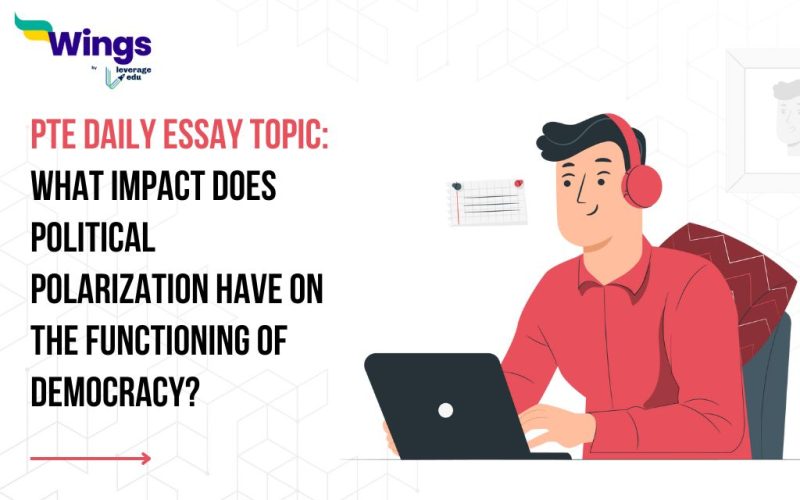Q. What impact does political polarization have on the functioning of democracy, and what measures can be taken to reduce its negative effects?
Ans. Democracy thrives on debate and the exchange of ideas. However, when this healthy disagreement morphs into entrenched political polarization, the very foundation of a functioning democracy crumbles. Political polarization, the widening ideological gap between opposing sides, casts a long shadow, hindering compromise, eroding trust, and ultimately, weakening democratic institutions.
One of the most detrimental effects of polarization is the dismantling of constructive discourse. When political identities become paramount, finding common ground seems impossible. Politicians, more concerned with scoring points than crafting solutions, resort to demonizing opponents and clinging to rigid stances. Compromise, the cornerstone of effective legislation, becomes a casualty. Gridlock ensues, leaving critical issues unaddressed and the public increasingly disillusioned.
Furthermore, polarization breeds a culture of distrust. Facts become partisan weapons, and media outlets cater to pre-existing biases. This creates echo chambers where individuals are only exposed to information that reinforces their existing beliefs. Public trust in institutions plummets, as each side views the other as illegitimate. This cynicism towards democratic processes can lead to voter apathy or, worse, a dangerous erosion of democratic norms.
Fortunately, there are measures we can take to counter these negative effects. Firstly, promoting media literacy is crucial. Equipping citizens with the tools to critically evaluate information can help them navigate the polarized media landscape. Secondly, fostering open dialogue and civil discourse is essential. Encouraging respectful conversations across the political divide, even on contentious issues, can foster understanding and chip away at the “us vs. them” mentality. Finally, supporting ranked-choice voting systems can incentivize politicians to appeal to a broader range of voters and weaken the grip of extreme ideologies.
In conclusion, political polarization presents a clear and present danger to democracies worldwide. By stifling compromise, eroding trust, and undermining public confidence, it cripples the very system it thrives on. The promotion of media literacy can foster civil discourse and adoption of alternative voting systems, the divide can be mended.
Are you preparing for the PTE Exam? Check out the blogs below to bolster your chances of securing better scores in the PTE exam.
| Related Blogs | ||
| PTE Exam Pattern – How to Crack the … | PTE – An Exam That Takes You To Places | PTE Writing Essay-Questions Samples |
| PTE Syllabus – Know It Inside Out | PTE Exam: Everything You Need To Know | PTE Exam Pattern for Academic and General |
Download the Leverage App today.


Need help preparing for PTE? Check out the best PTE preparation courses in the market offered in a live training environment by trusted educators. If you want to help studying abroad, call 1800572130.


 One app for all your study abroad needs
One app for all your study abroad needs












 60,000+ students trusted us with their dreams. Take the first step today!
60,000+ students trusted us with their dreams. Take the first step today!